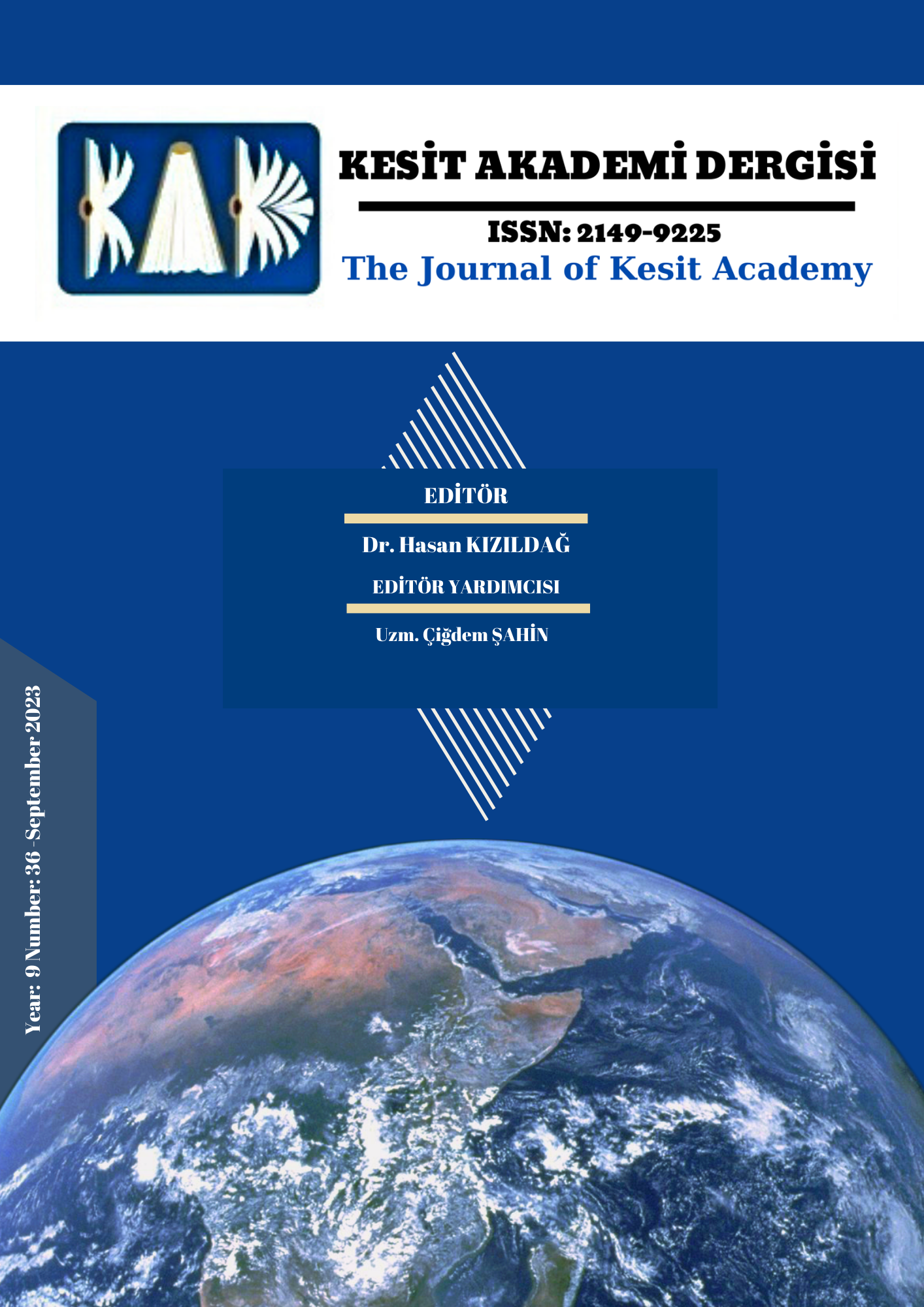Author :
Abstract
Kültürel zekâ kavramı ilk kez 2003 yılında Ang ve Earley tarafından yürütülen bir çalışma ile duyulmaya başlanmıştır. Kültürel zekâ bireylerin farklı kültürlerde iken insanları anlayış ile karşılayıp iletişimde başarılı, esnek ve anlayışlı olmasıdır. Başka bir ifade ile bireylerin farklı kültürdeki insanları mensubu oldukları kültür çerçevesinde değerlendirerek esnek, anlayışlı ve saygılı olmasıdır. Yapılan bu çalışmada kültürel zekâ ile ilgili işletme alanındaki lisansüstü çalışmalara ilişkin sistematik bir inceleme yapılmıştır. Yapılan çalışma ile gelecekteki araştırmalara genel bir çerçeve çizerek yarar sağlamak amaçlanmaktadır. Bu amaç doğrultusunda Türkiye’de Ulusal Tez Merkezi veri tabanından kültürel zekâ ile ilgili olarak gerçekleştirilmiş 34 lisansüstü çalışmaya ulaşılmıştır. İşletme alanındaki tezler filtrelendiğine 19 teze ulaşılmıştır. Ulaşılan tezin sayısının azlığı kavramın 2003 yılında gündeme geldiğinden kaynakladığı düşünülmektedir. Araştırma kapsamında ulaşılan tezlerden amaca uygun olarak görülen 19 tez incelenmiştir. İncelemeye alınan tezlerin türüne, yayımlandığı yıla, yapıldığı üniversiteye, yapıldığı bölgeye, bağlı olunan enstitüye, veri toplama aracına, katılımcı sayısına ve tekrar eden anahtar kelimelere göre incelenmiştir. Yapılan inceleme sonucunda yüksek lisans tezlerinin yoğunlukta olduğu ve tezlerde veri toplama aracı olarak çoğunlukla anket kullanıldığı tespit edilmiştir. En çok tezin yayınlandığı il İstanbul, bölge ise Marmara bölgesindedir. Ayrıca en çok sosyal bilimler enstitüsünde yayımlandığı ve en sık tekrar eden anahtar kelimenin kültürel zekâ olduğu tespit edilmiştir.
Keywords
Abstract
The concept of cultural intelligence began to be heard for the first time in 2003 with a study conducted by Ang and Earley. Cultural intelligence is the ability of individuals to meet people with understanding when they are in different cultures, and to be successful, flexible and understanding in communication. In other words, individuals are flexible, understanding and respectful by evaluating people from different cultures within the framework of their culture. In this study, a systematic review of graduate studies in the field of business related to cultural intelligence was made. The aim of the study is to provide benefit by drawing a general framework for future research. For this purpose, 34 postgraduate studies related to cultural intelligence were obtained from the database of the National Thesis Center in Turkey. As the theses in the field of business were filtered, 19 theses were reached. It is thought that the low number of thesis reached is due to the fact that the concept came to the fore in 2003. Among the theses reached within the scope of the research, 19 theses, which were found to be suitable for the purpose, were examined. The theses were examined according to the type, year of publication, university, region, affiliated institute, data collection tool, number of participants and repetitive keywords. As a result of the examination, it was determined that the master's theses were intense and the questionnaire was mostly used as a data collection tool in the theses. The province where the most theses are published is in Istanbul, and the region is in the Marmara region. In addition, it has been determined that the most frequently recurring keyword is cultural intelligence, which is mostly published in social sciences institutes.





